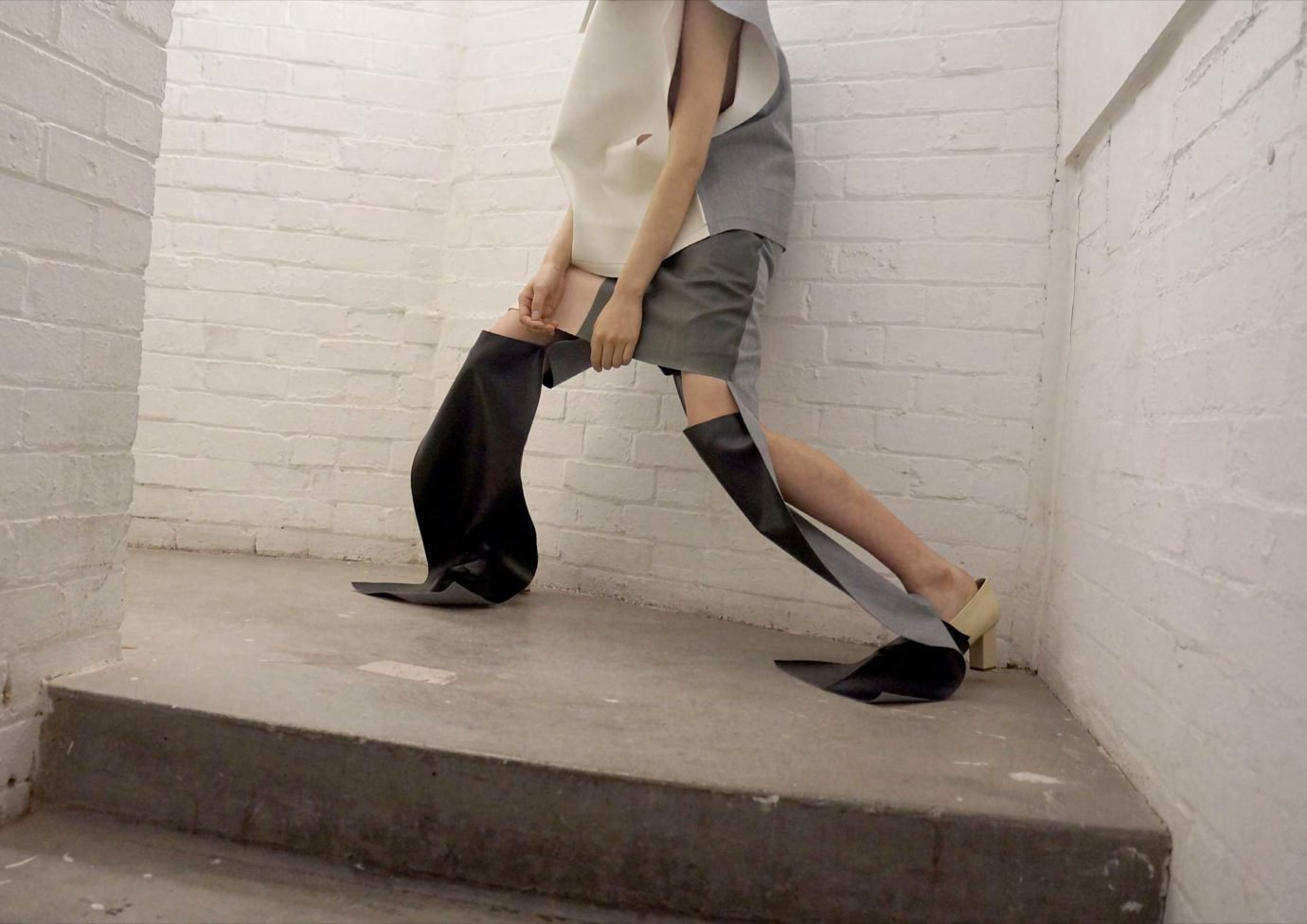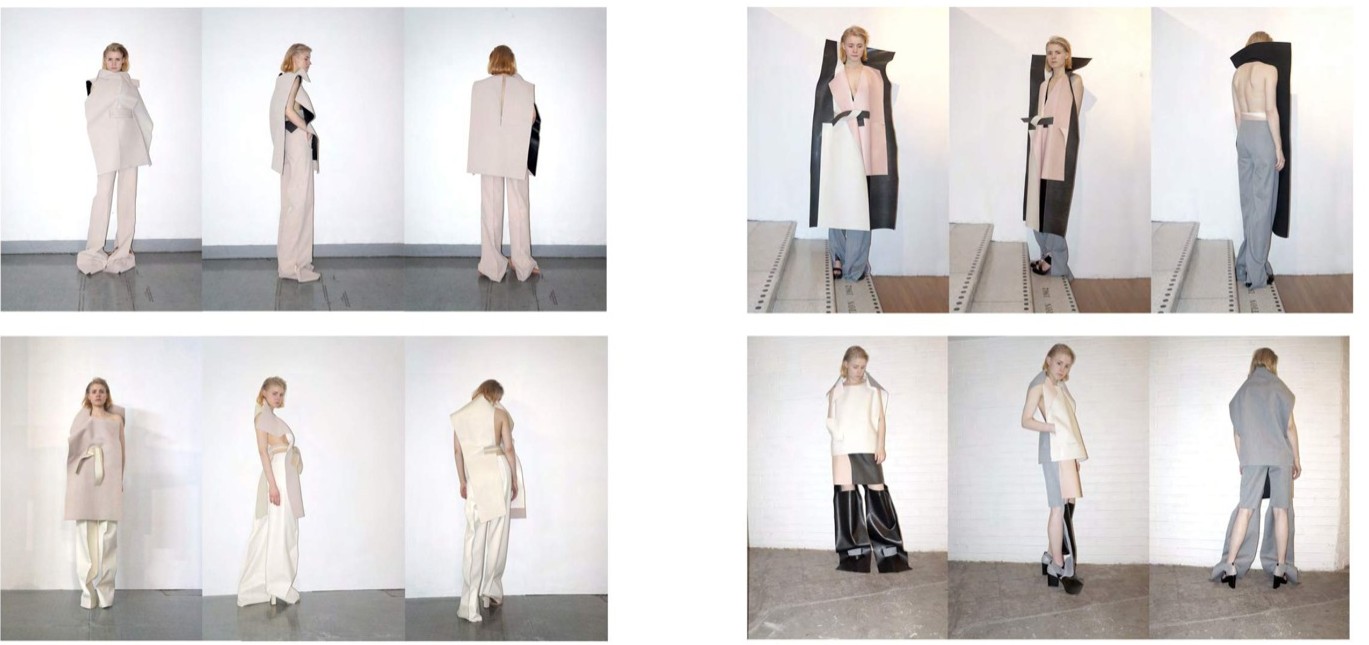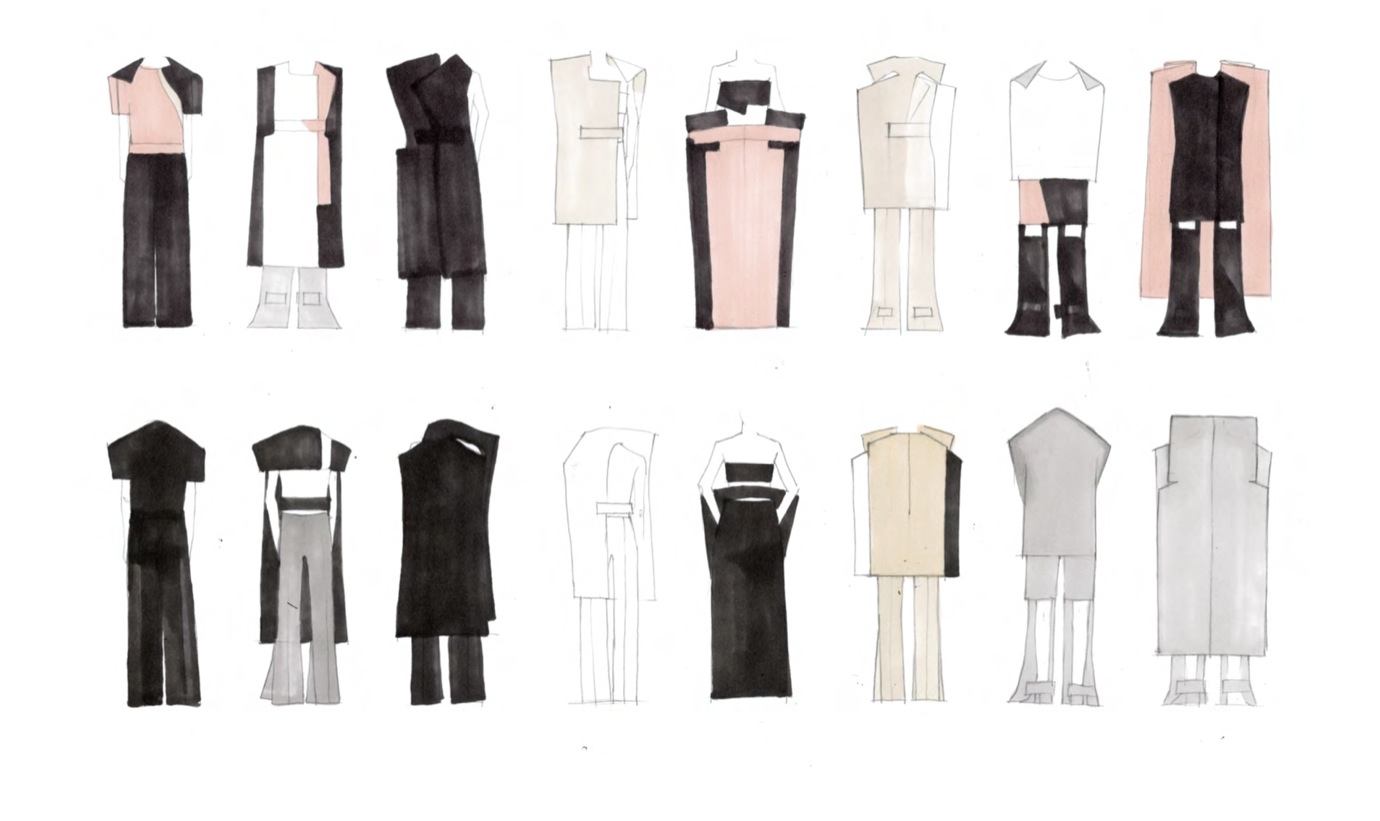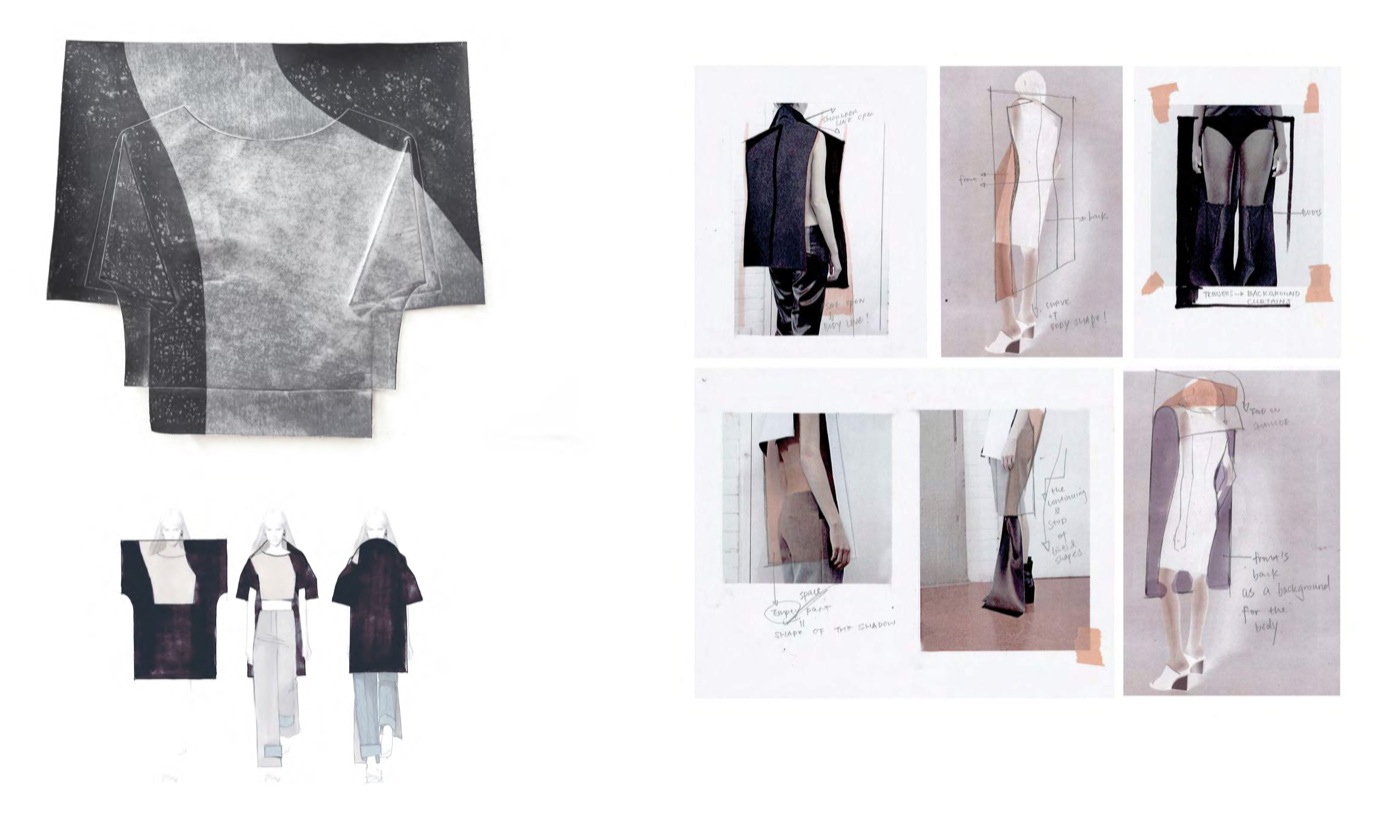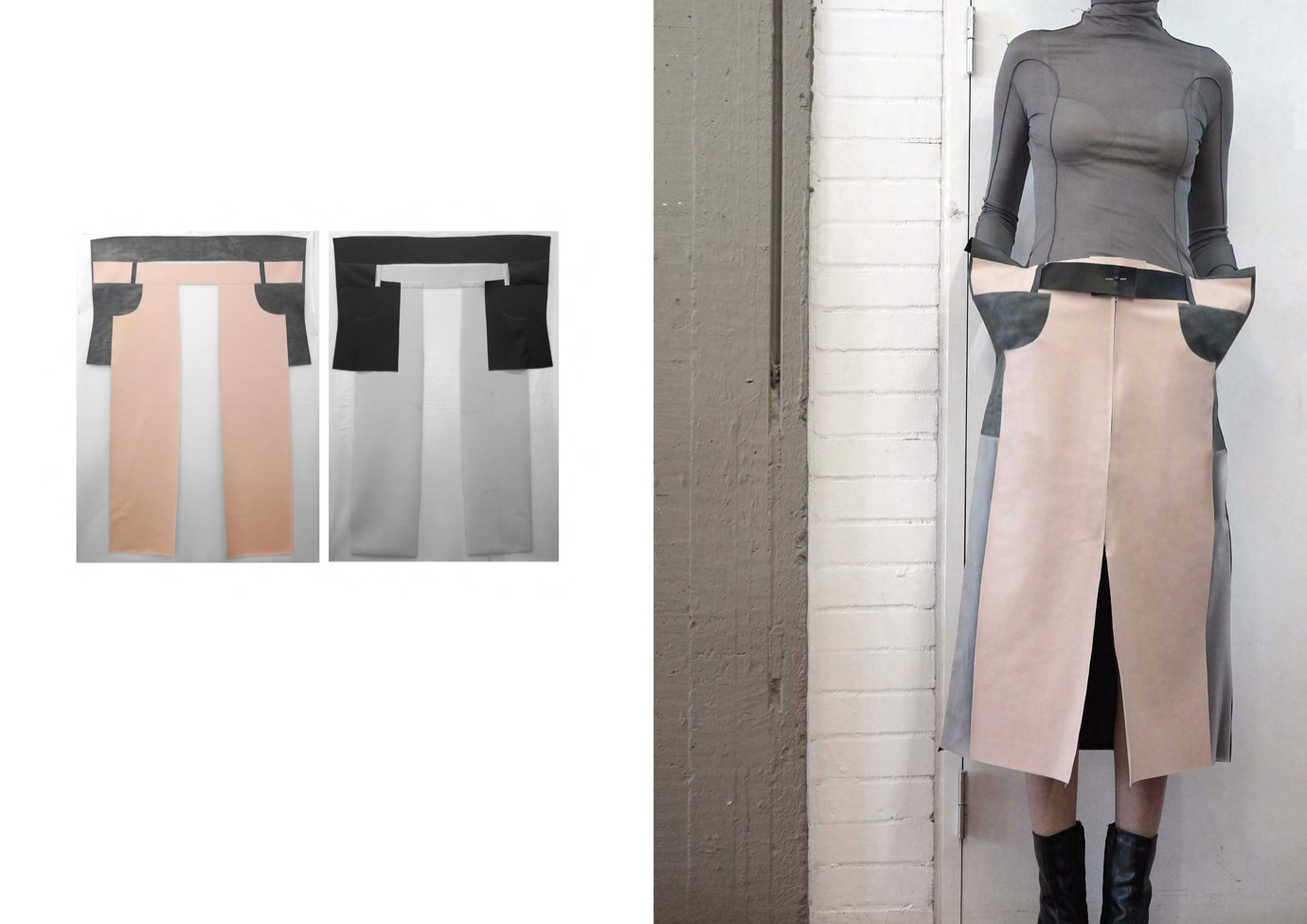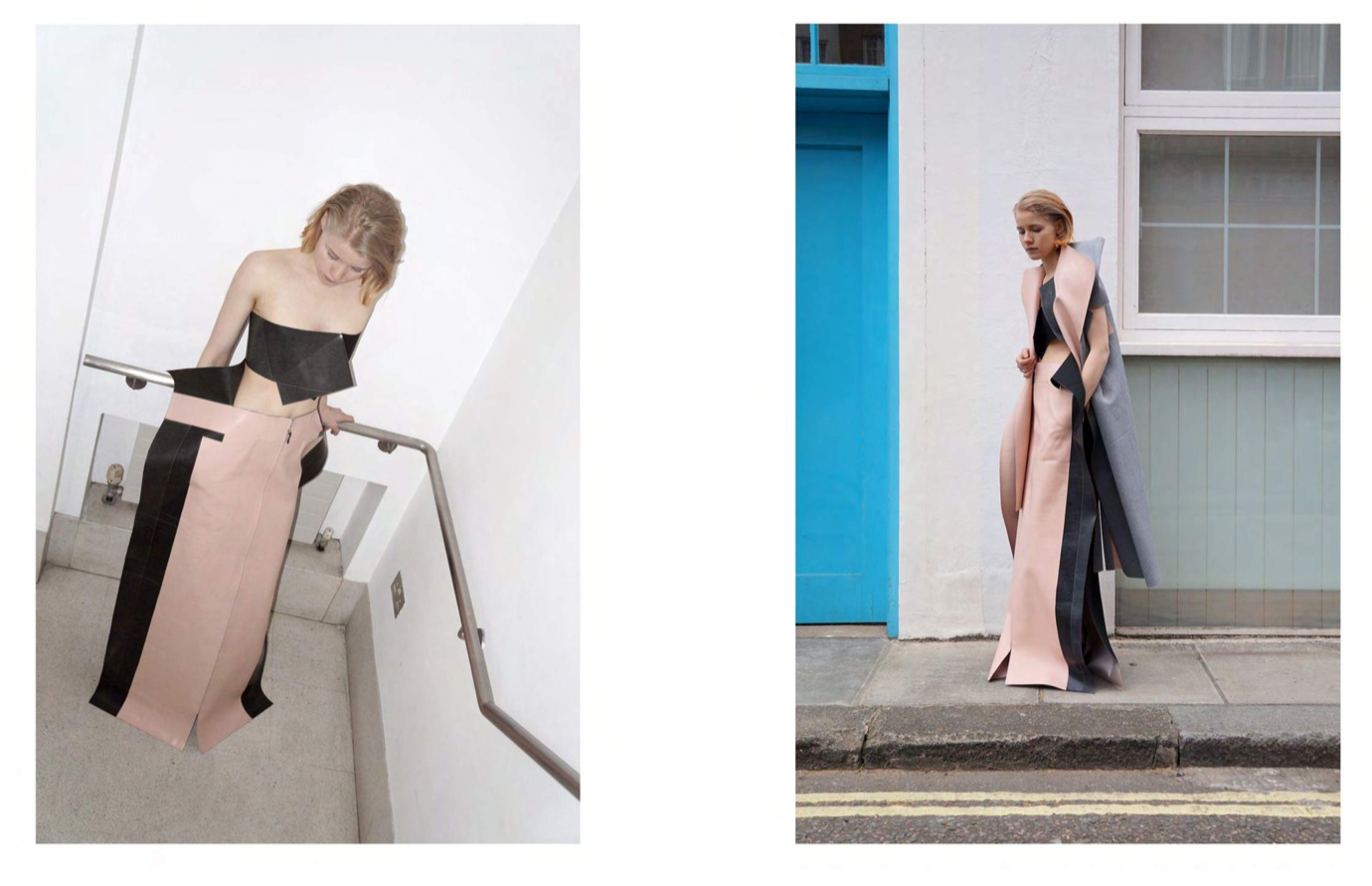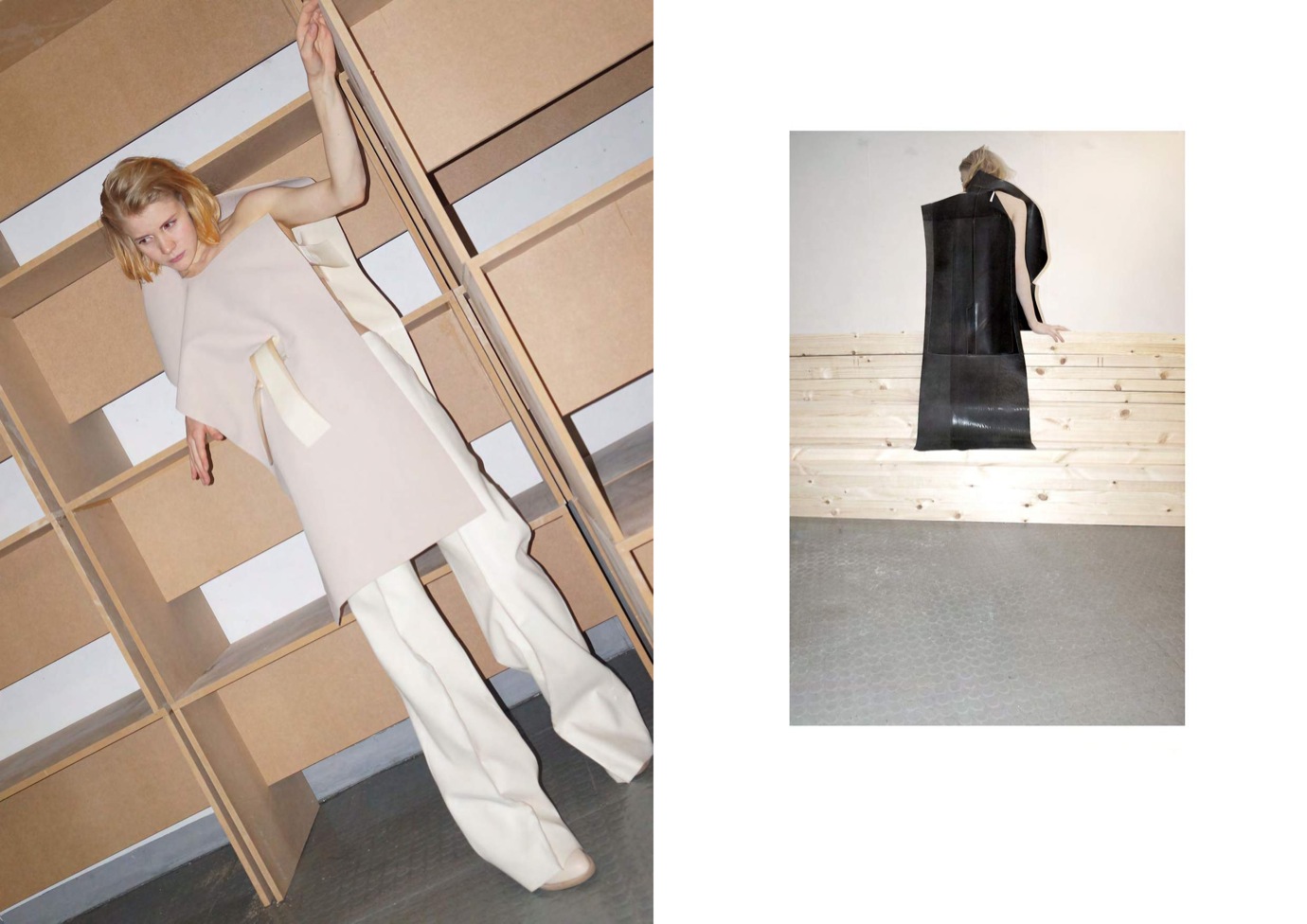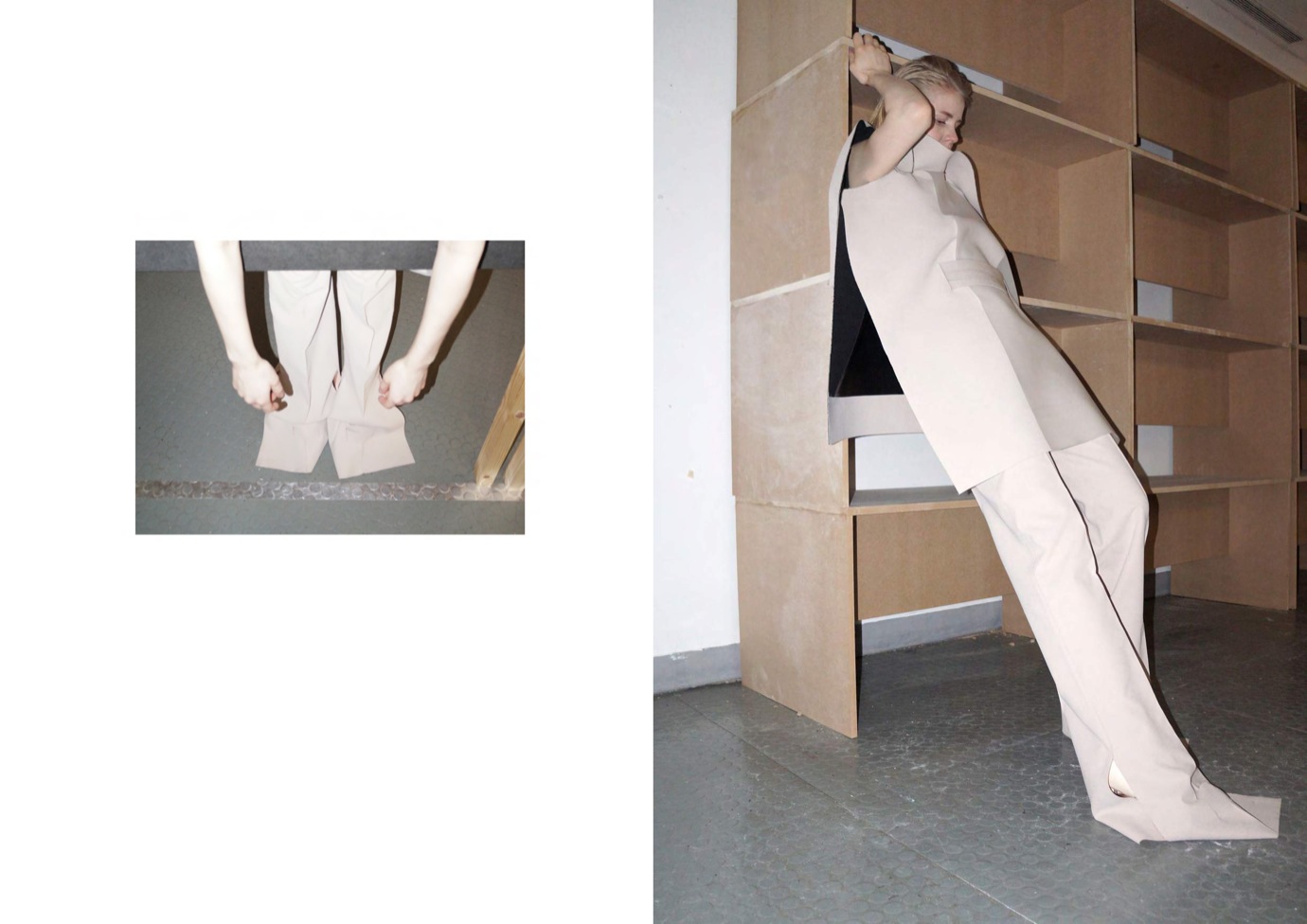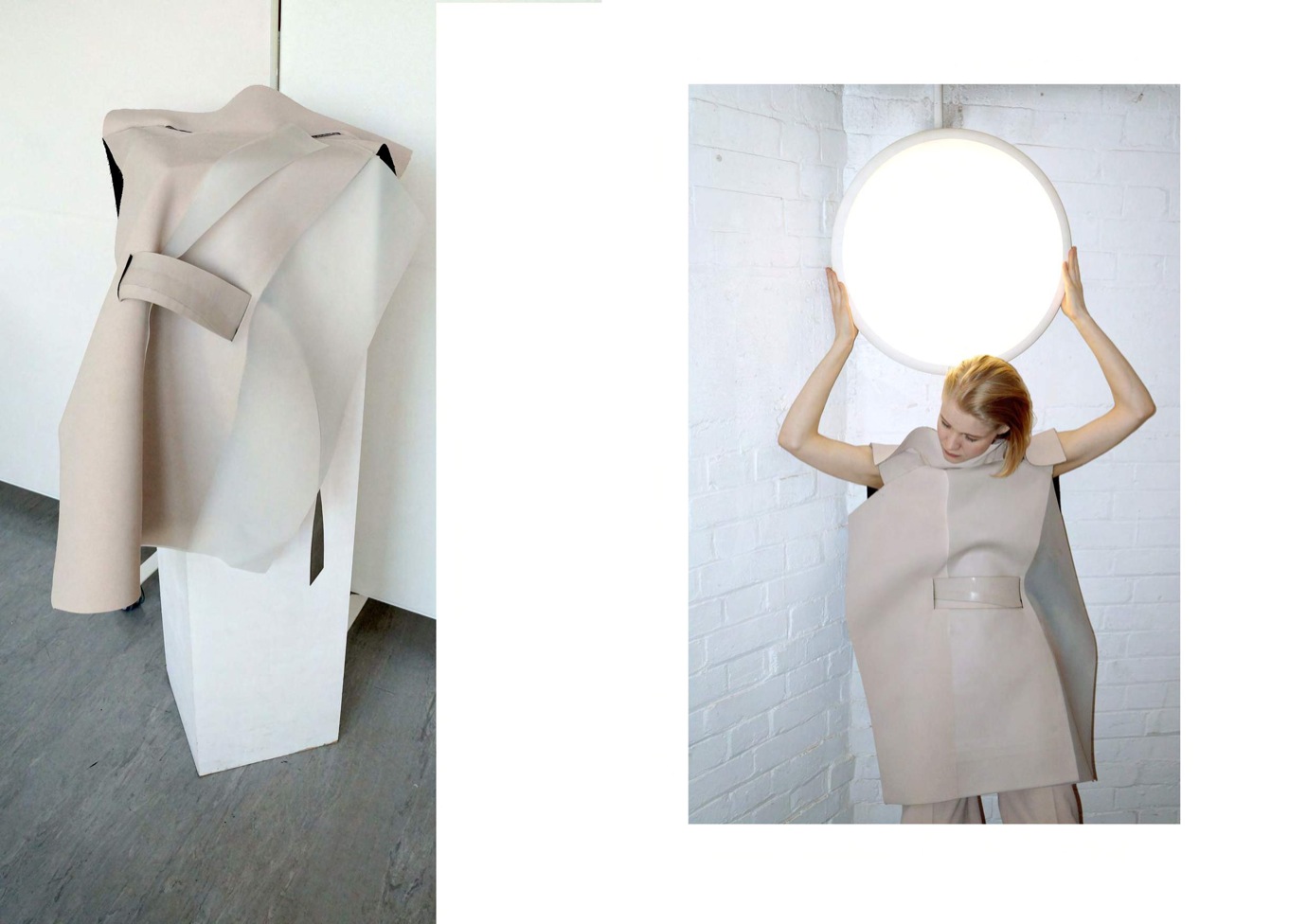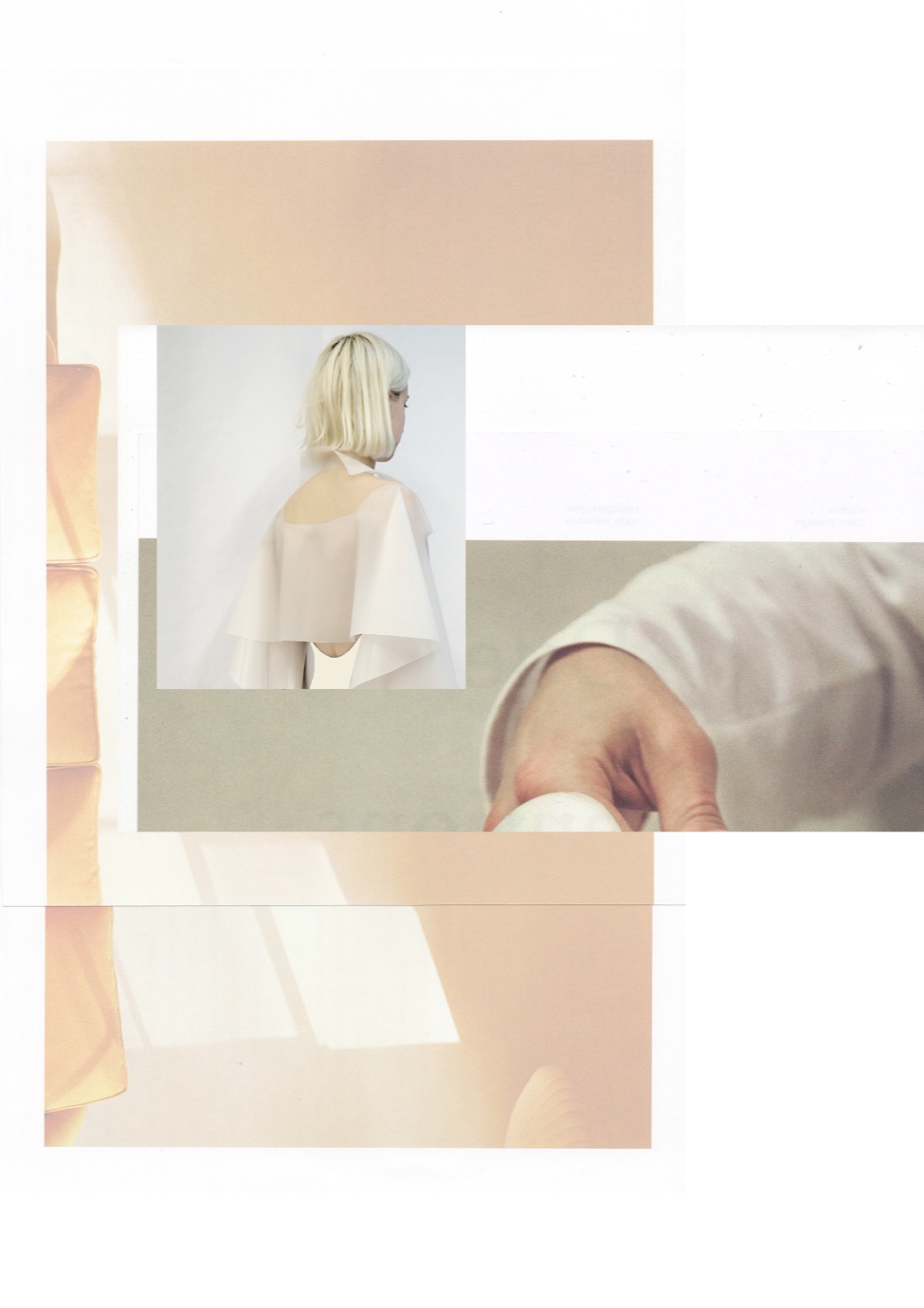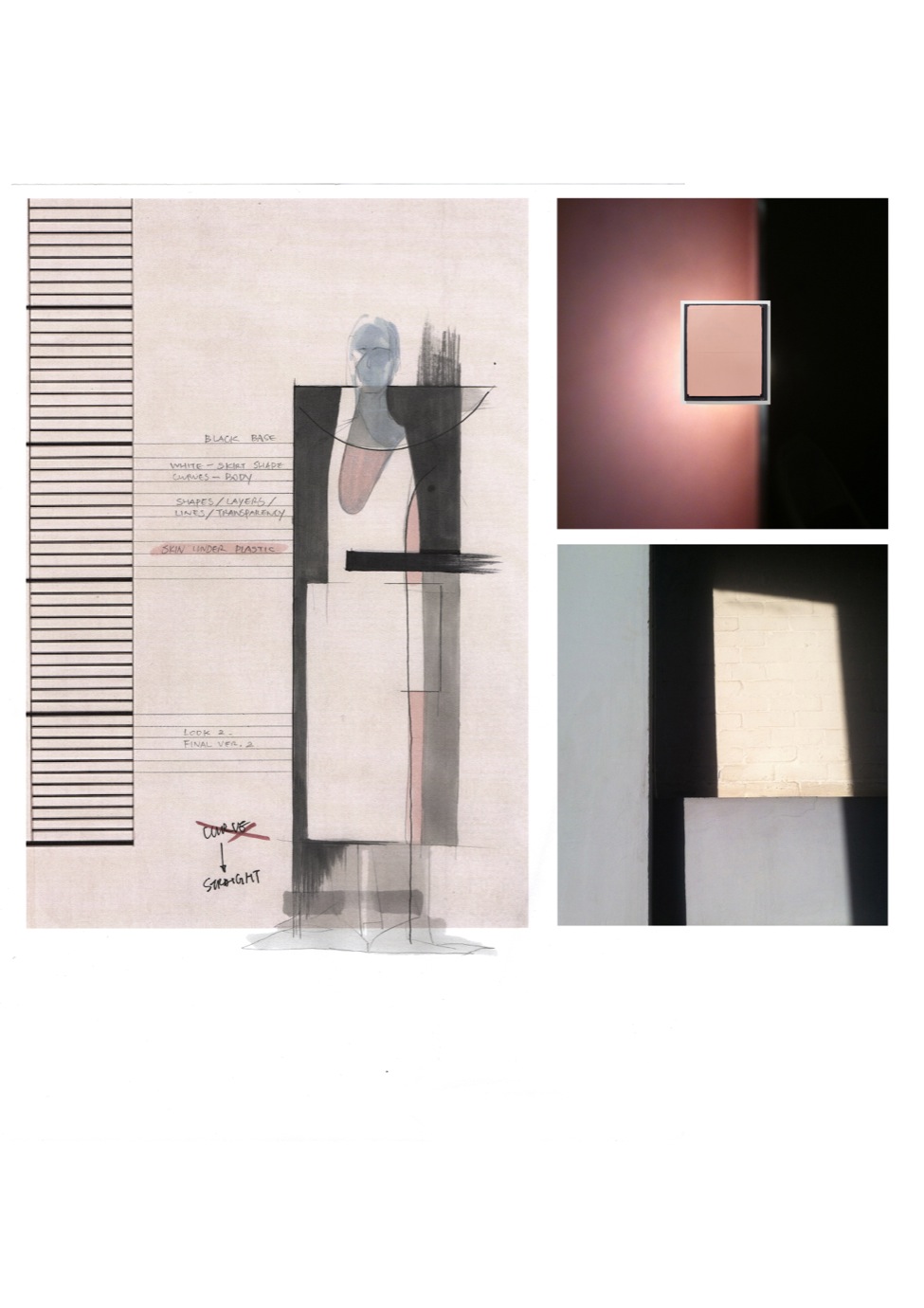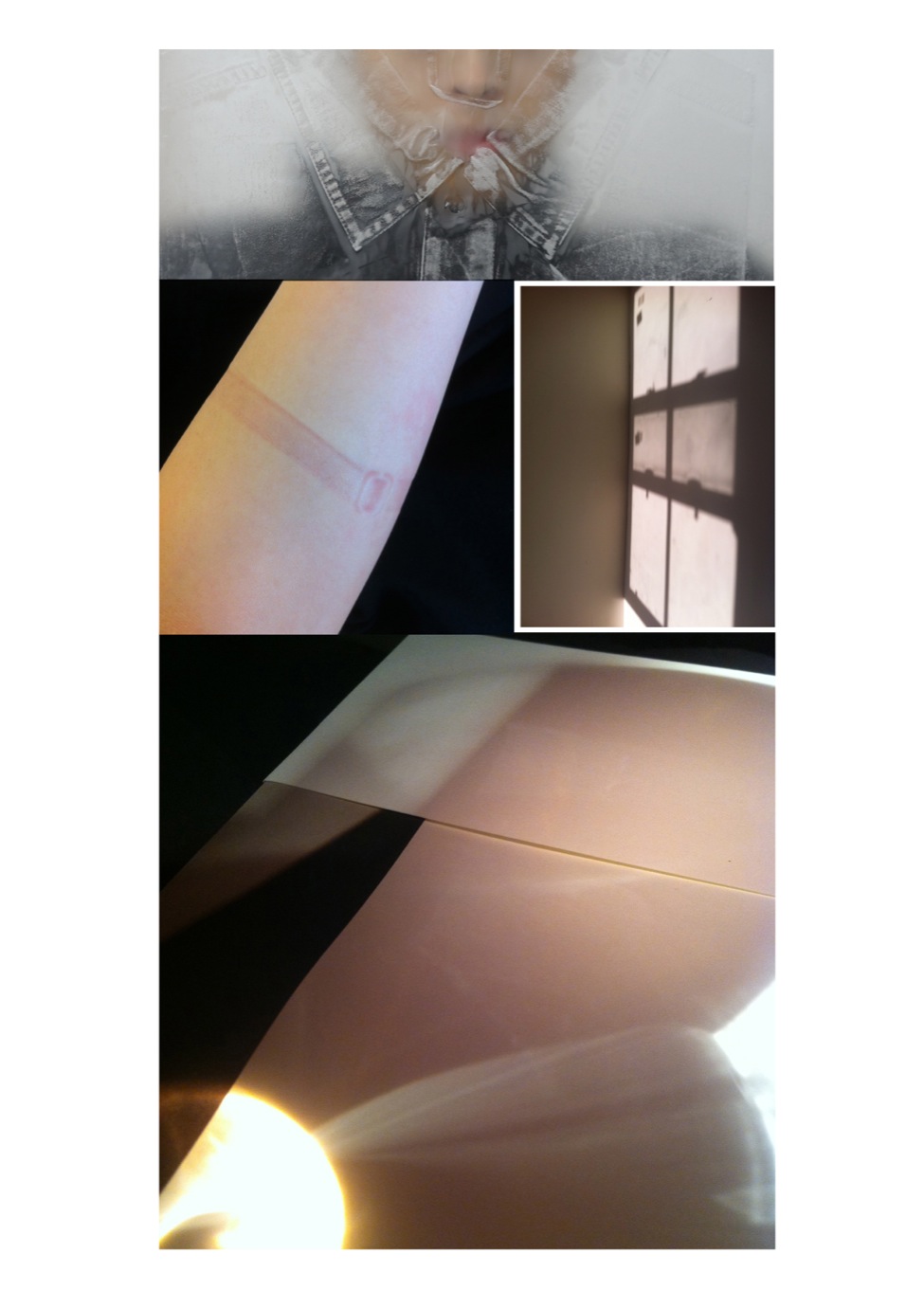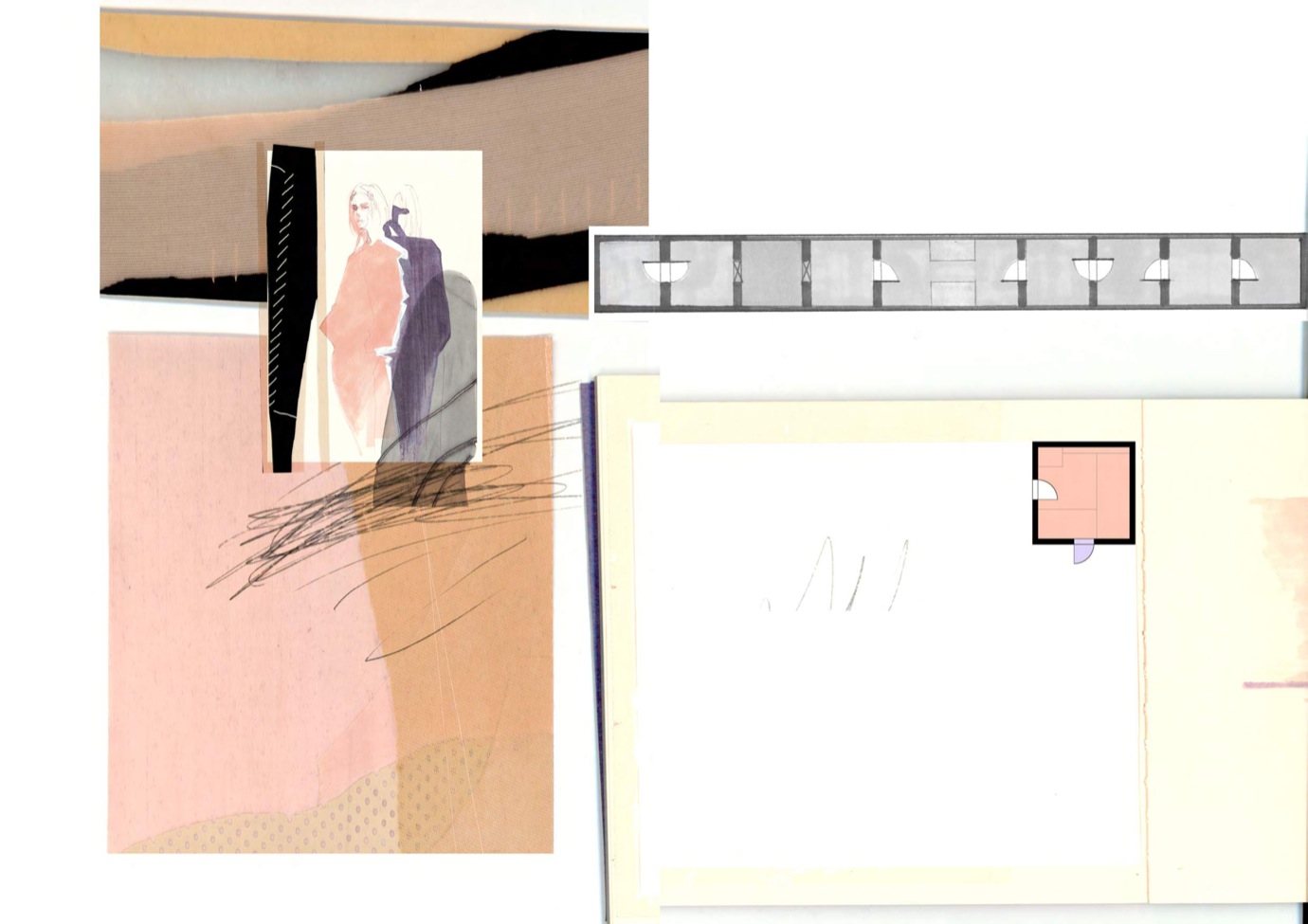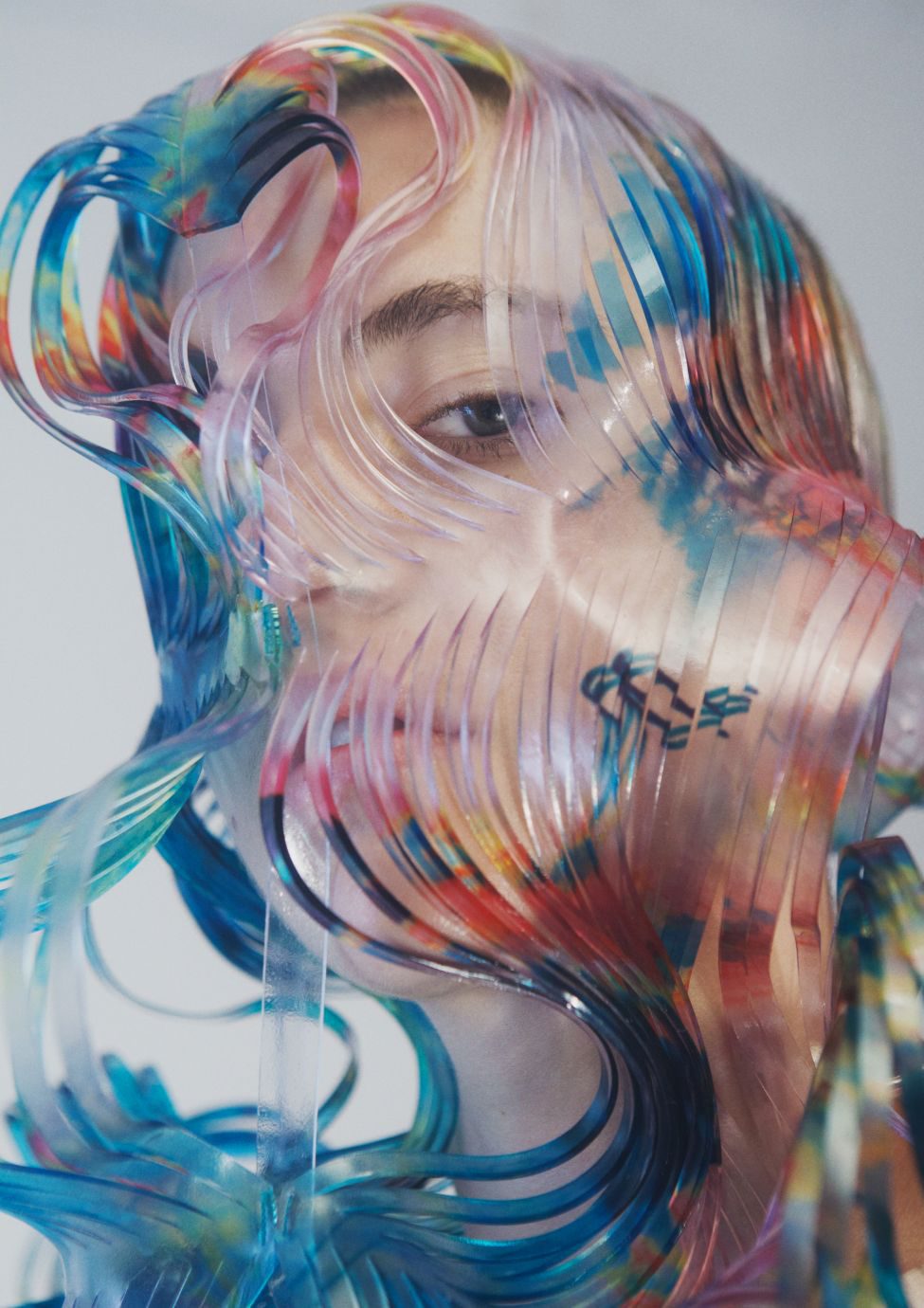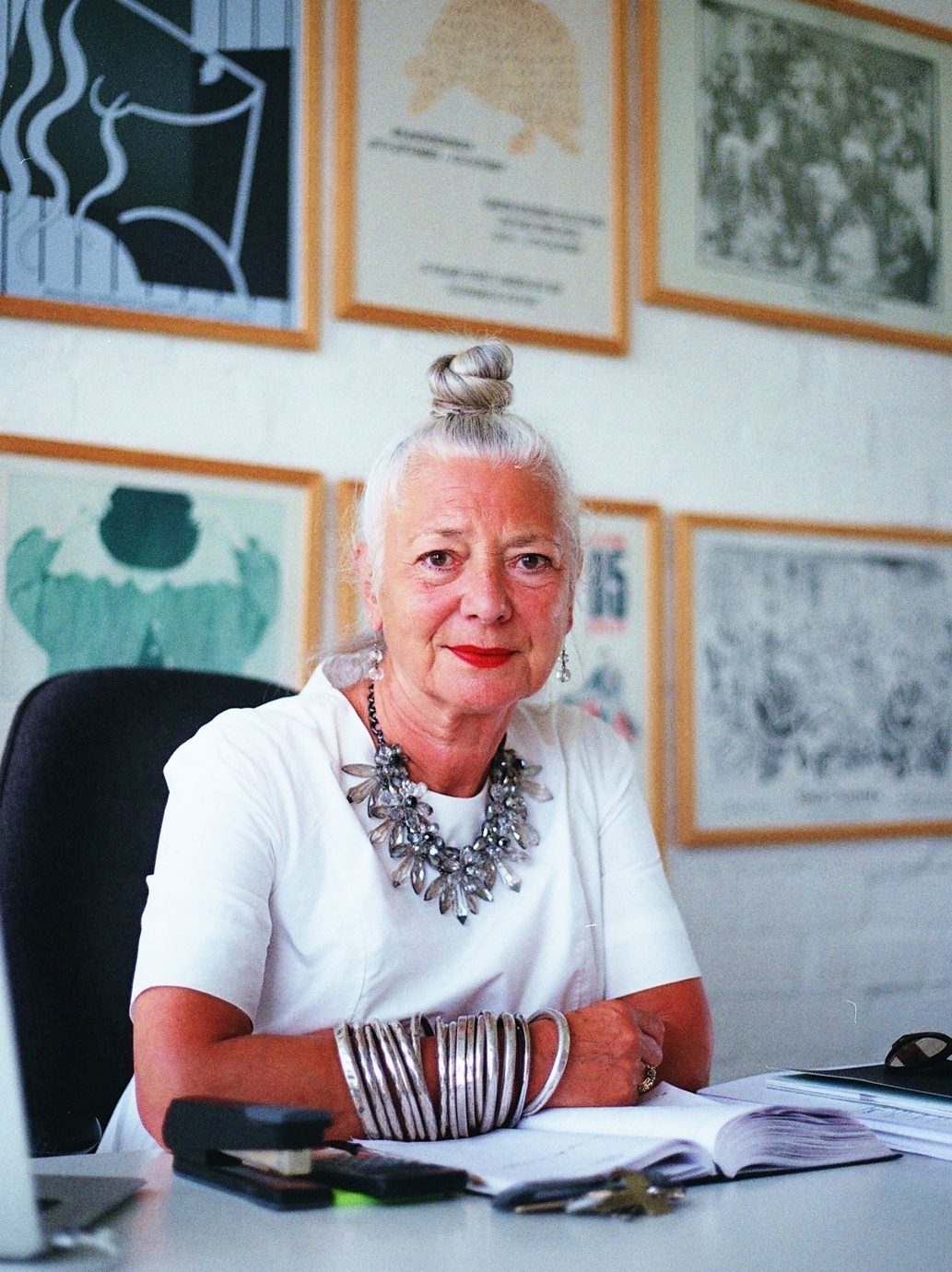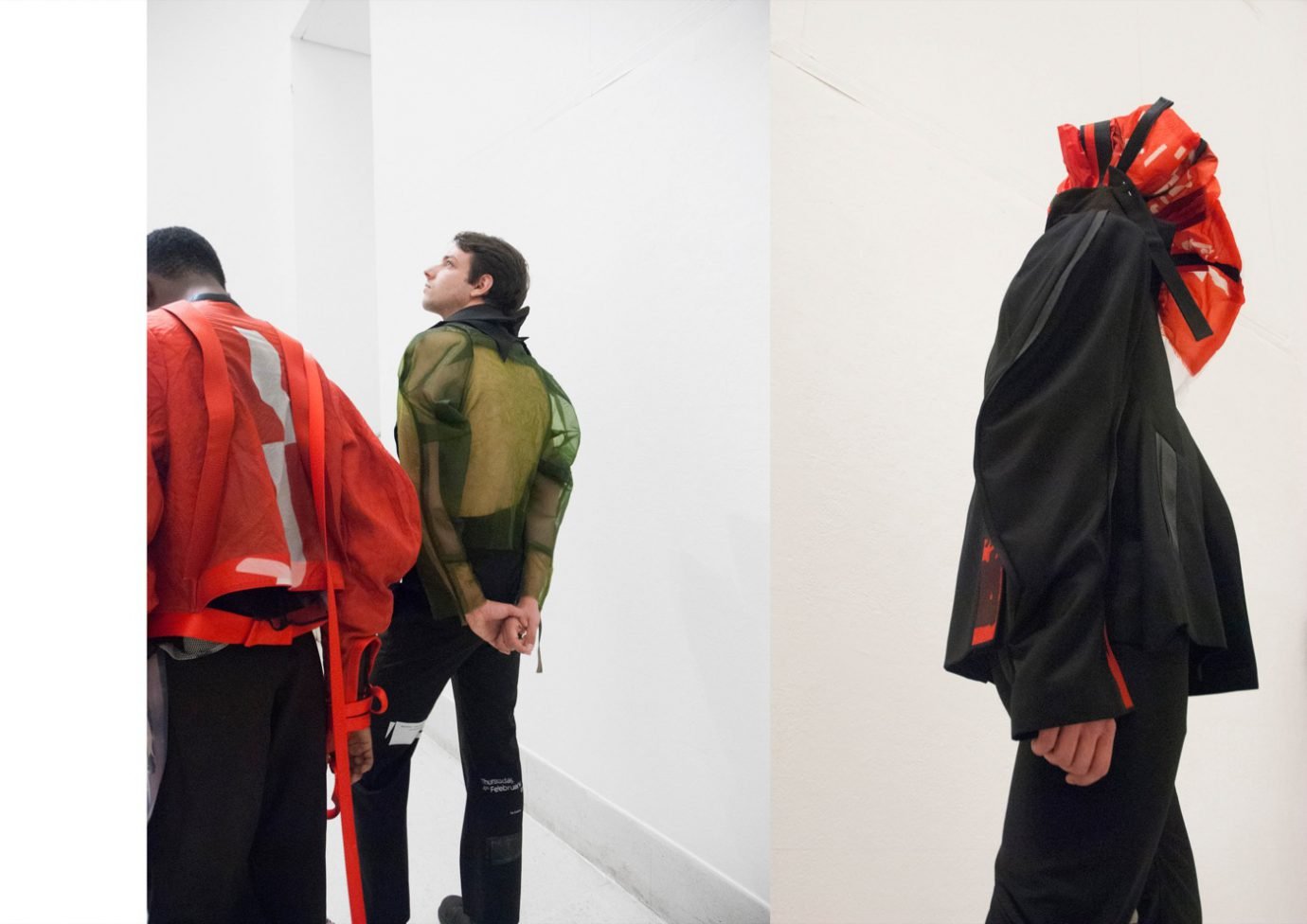“SUCH RULES OF UNCONSCIOUS LINKS ARE REALLY INTERESTING TO ME. I WANT TO KNOW WHY I LIKE A PICTURE, AND WHY I DESIGN.”
It shows that Zhujing Jiang is highly reflective of the process of movement and transition. She critically investigates her own experiences and memories, which spill over into her design practice. Her two years at The Royal College of Art taught her to truly understand herself and her practice. Concepts, reactions and memories reappear in her design process, providing her a further reflection on her practice. “This kind of self-analysis is like a map, showing how my taste is linked to my earlier experiences,” she reflects. “For example, I chose a light grey wool fabric for my graduate collection, and after I bought it, I realized that it had the same texture as a piece of cloth I drew in a life drawing class about 10 years ago. Such rules of unconscious links are really interesting to me. I want to know why I like a picture, and why I design.”

